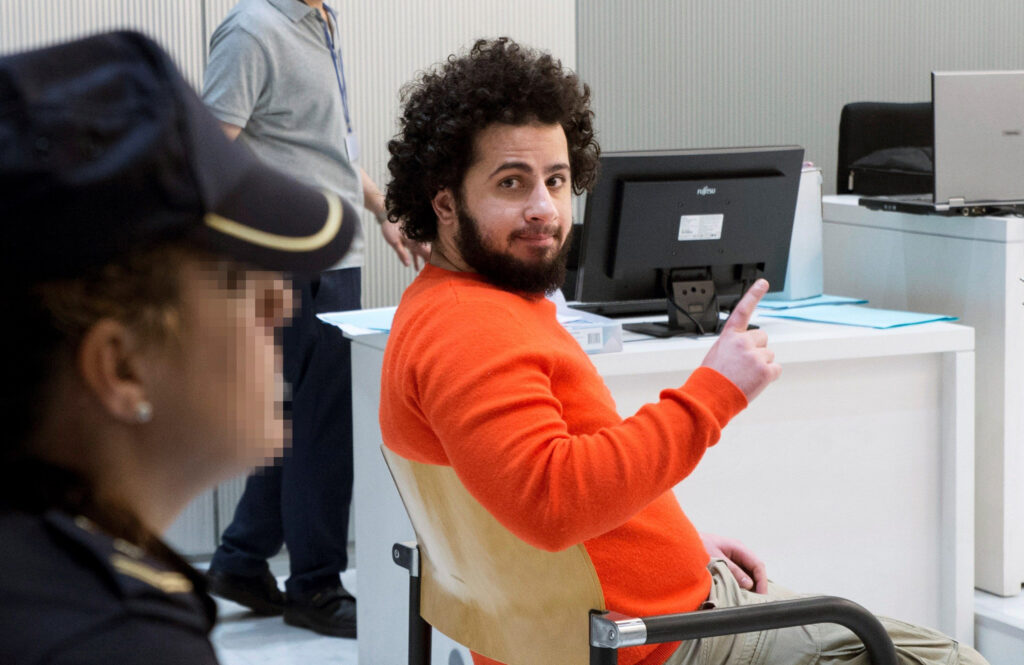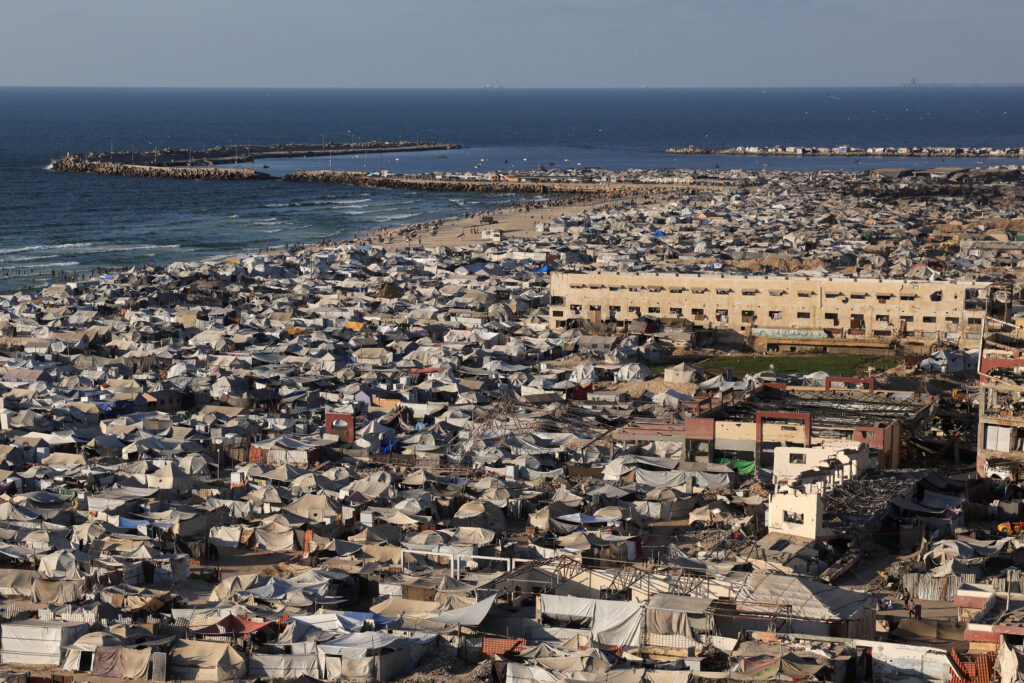AFP Asia Business
Denmark high court rules Dane in IS was spy, not jihadist
Denmark’s Supreme Court ruled Tuesday that a Dane of Syrian origin who was jailed for having spent time with the Islamic State (IS) group in Syria was in fact an informant for Danish intelligence services.The case has captivated the Nordic country for years and has shone an embarrassing spotlight on its intelligence agencies.The ruling paves the way for Ahmed Samsam, 35, to seek a reversal of his 2018 conviction in Spain for being a member of the jihadist group.”The Danish Security and Intelligence Service (DSIS) and the Danish Defence Intelligence Service (DDIS) must acknowledge that, in connection with his trips to Syria in 2013 and 2014, ‘A’ collaborated with intelligence services, and that he received fees and other compensations in exchange for providing information on Danish fighters in Syria to the intelligence services,” the court said in its verdict.The two agencies published a public admission within hours of the court ruling.Since Samsam’s case emerged in 2018, both intelligence services had refused to confirm or deny the identity of their informers for security reasons.A lawyer for the intelligence agencies called Tuesday’s ruling “regrettable”.Samsam was handed an eight-year sentence by the Madrid court that convicted him. He served most of his time in prison in Denmark after being transferred, and was released in 2023.He had denied any terrorist activity, and his claim had been backed by several testimonies and journalistic investigations, which were presented to a lower Danish court that tried to establish whether or not he was a Danish intelligence agent.He lost that case, before the Supreme Court ruled in his favour.It found that he had explained “in detail, in a coherent and meaningful manner” how he had been recruited, and that he had documented cash and bank transfer payments, the identity of his recruiters, his training and meeting places.”Our main goal is to pursue the matter in Spain. We need to think carefully about the best steps to take to do so,” Samsam’s lawyer Rene Offersen told reporters outside the courthouse.- ‘Big mistake’ -The case has enthralled Danes for five years.”I have a lot of confidence in the Danish courts, but I never thought it would take this long,” Samsam told reporters as he left the courthouse.”Especially not after the media started covering the story in 2020,” he added.The affair has left the intelligence agencies red-faced. Samsam said that could have been avoided if the agencies had backed him up in 2018.”I don’t know which monkeys have been running the show over there but they really made a big mistake and they have handled it like amateurs,” he said.”The fact that they let it get so public, they can only blame themselves.”Before Tuesday’s verdict, Frederik Waage, a law professor at the University of Southern Denmark, said an admission by intelligence agencies that Samsam was an agent would have been “a sensation” and “would interfere with the operations of the Danish intelligence agencies in a way not seen before.”Apart from the IS charge, Samsam still faces other legal problems. On Monday, Copenhagen’s court of appeals upheld a three-month sentence against him for violence against a law enforcement officer.
Israel builds up military ahead of Gaza City offensive
Israel intensified its military build-up on Tuesday as reservists began responding to call-up orders ahead of a planned offensive to capture Gaza City, nearly two years into a devastating war. Despite mounting pressure at home and abroad to end its campaign in the Palestinian territory, Israel is gearing up to seize Gaza’s largest city — intensifying bombardments and operating in the outskirts in recent days.The United Nations estimates that nearly a million people live in Gaza City and its surroundings, where a famine has been declared.In a statement, the military said it had in recent days “been carrying out logistical and operational preparations ahead of expanded combat operations and the large-scale mobilisation of reservists.”Israeli media reported that reservists began responding to draft orders, with Channel 12 saying a second wave was expected in November.Approving the military’s plans for the conquest of Gaza City in late August, Israeli Defence Minister Israel Katz said he had authorised the call-up of about 60,000 reservists.At the time, an Israeli military official told journalists the draft would begin in September and that the main forces operating in Gaza in the next stage of the campaign would be active duty forces, not reservists.On the ground in Gaza, the civil defence agency said at least 45 people had been killed by Israeli forces, including 10 in an air strike on a residential building in the southwest of Gaza City.AFP footage from the aftermath of the strike in the Tel al-Hawa neighbourhood showed rescue workers sifting through piles of rubble and mangled metal on the top floor of the building, from where Palestinians retrieved the body of a dead girl.”We were sleeping safely in our homes and suddenly we woke up to the sound of bombing and destruction and found most of our neighbours murdered and injured,” said Sanaa al-Dreimli, who witnessed the strike.”We woke up to lifeless bodies. What is the fault of these children? What did we do for this to happen to us?”Contacted by AFP, the Israeli military requested precise timeframes and coordinates to look into the civil defence figures, but said it could check one incident in which the rescue agency reported four killed by Israeli gunfire near an aid point in the centre of the territory.Media restrictions in Gaza and difficulties in accessing many areas mean AFP is unable to independently verify the tolls and details provided by the civil defence agency or the Israeli military.- Evacuation ‘incomprehensible’ -The military last week declared Gaza City a “dangerous combat zone”, while a spokesman said the evacuation of the population hub was “inevitable”.The International Committee of the Red Cross has warned any Israeli attempt to evacuate the city would be impossible to do in a safe and dignified manner.The dire state of shelter, healthcare and nutrition in Gaza meant evacuation was “not only unfeasible but incomprehensible under the present circumstances,” ICRC president Mirjana Spoljaric said in a statement.Pressure is growing on Israel to halt its offensive, which it says is aimed at eradicating Hamas and returning hostages seized by Palestinian militants in their October 7, 2023 attack that sparked the war.Belgium on Tuesday became the latest Western country to say it will recognise the State of Palestine at the UN General Assembly this month, following similar announcements by Australia, Canada and France.In a post on X, Belgian Foreign Minister Maxime Prevot said that “firm sanctions are being imposed against the Israeli government” and that the decision came “in view of the humanitarian tragedy” unfolding in Gaza.Hamas’s October 2023 attack on Israel resulted in the deaths of 1,219 people, mostly civilians, according to an AFP tally based on Israeli figures.Of the 251 hostages seized during Hamas’s 2023 attack, 47 are still being held in Gaza, including 25 the military says are dead.Israel’s retaliatory offensive has killed at least 63,557 Palestinians, most of them civilians, according to figures from the health ministry in Hamas-run Gaza that the United Nations considers reliable.


